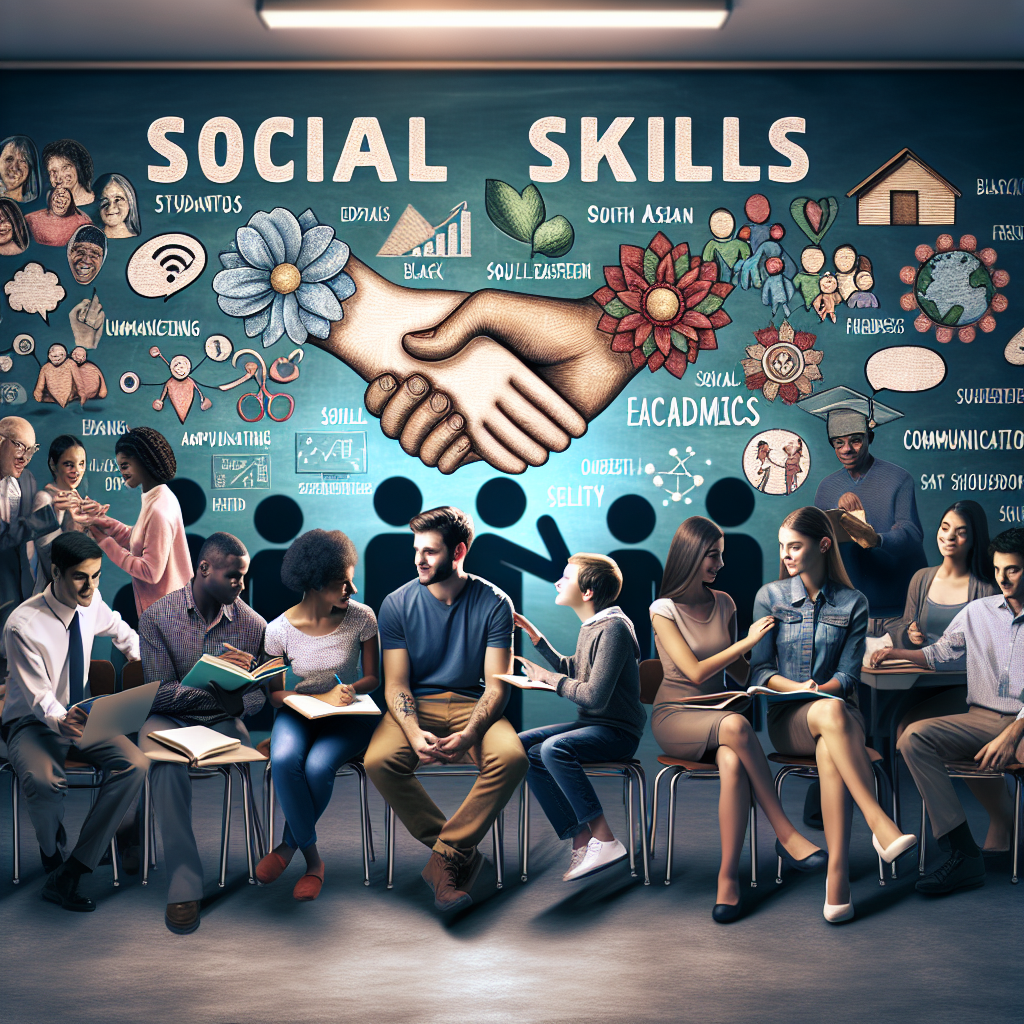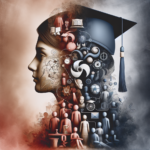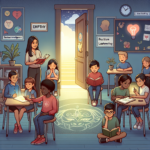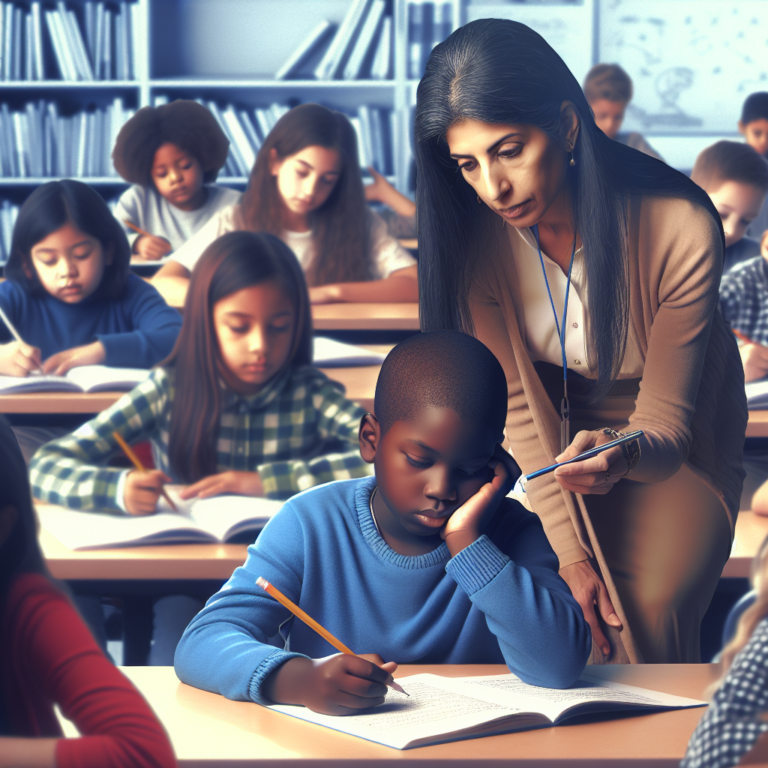
Beyond Academics: The Essential Importance of Social Skills for Students with Learning Disabilities
Introduction
In today’s fast-paced, interconnected world, academic success alone is no longer sufficient to ensure a fulfilling and productive life. For students with learning disabilities, the stakes can be even higher, with the academic landscape presenting unique challenges that go beyond grades and test scores. This is where the phrase "Beyond Academics: The Importance of Social Skills for Students with Learning Disabilities" takes center stage. Social skills can play a crucial role in empowering these students, aiding their ability to communicate effectively, forge relationships, and thrive both academically and personally.
Research shows that students with learning disabilities often struggle more with social interactions than their neurotypical peers. This article will explore why enhancing social skills is essential, how these skills can be developed, and the significant impact they have on the lives of these students. Through case studies and practical examples, we’ll demonstrate that fostering social skills is not simply an academic add-on; it’s a fundamental component to achieving long-term success.
Understanding Learning Disabilities
What are Learning Disabilities?
Learning disabilities encompass a range of disorders affecting the brain’s ability to receive, process, store, and respond to information. These challenges can manifest in various ways — from difficulties with reading (dyslexia) and writing (dysgraphia) to issues with numbers (dyscalculia) and organization.
Importance of Identifying Learning Disabilities
Understanding a child’s specific learning disability is crucial for tailoring educational approaches. The identification process often includes psychological evaluations, behavioral assessments, and input from teachers and parents. Early intervention can significantly alleviate academic pressures, but this does not address the social challenges these students may face.
The Importance of Social Skills
Why Social Skills Matter
Social skills are fundamental for establishing meaningful relationships, enhancing emotional well-being, and developing communication abilities. For students with learning disabilities, these skills can mitigate feelings of isolation and frustration, allowing them to connect with peers and navigate social situations effectively.
Social Skills vs. Academic Skills
While academic skills are often prioritized in educational settings, social skills are perhaps even more critical for overall life success. A study published in the Journal of Learning Disabilities indicates that students with strong social skills are more likely to excel academically, showing how interconnected these two domains truly are.
The Gap in Social Skills
Research indicates that students with learning disabilities frequently face greater challenges in social contexts than their peers. They may struggle with understanding nonverbal cues, forming friendships, and engaging in group activities. Data shows that nearly 60% of these students report difficulties in making friends, impacting their long-term mental health and academic performance.
The Role of Educators and Parents
Educators and parents play a pivotal role in fostering social skills. Collaborating on tailored approaches that focus on enhancing communication, empathy, and conflict resolution will lead to more holistic development.
Case Studies: Real-World Applications
Case Study 1: Nathan’s Story
Background: Nathan, a 10-year-old diagnosed with dyslexia and ADHD, struggled in both academic and social settings.
Intervention: A dedicated special education teacher introduced a social skills program that integrated role-playing and peer-to-peer mentoring.
Outcome: Nathan learned to articulate his feelings and developed better listening skills. He experienced significant improvements in his ability to make friends and felt more included in group activities.
Relevance: Nathan’s experience underscores the importance of tailored interventions in social skill development. This approach not only helps academic improvement but also fosters a sense of belonging.
Case Study 2: Sarah’s Journey
Background: Sarah, a high school junior with autism, faced significant anxiety during social interactions, leading to social isolation.
Intervention: Sarah’s school implemented a "lunch buddies" program, pairing students with common interests for guided discussions and activities.
Outcome: Over six months, Sarah gained confidence and established friendships, which subsequently improved her academic engagement.
Relevance: This case demonstrates the positive effects of structured social interaction and the importance of creating inclusive environments for students with learning disabilities.
Summary of Findings
These case studies illustrate the efficacy and necessity of social skills training as part of the educational framework, reinforcing that beyond academics, the importance of social skills for students with learning disabilities cannot be overstated.
Strategies for Developing Social Skills
1. Structured Social Skills Training
Implementing structured programs that focus on the practical application of social skills is crucial. Schools can utilize role-playing scenarios, which provide a safe and controlled environment for students to practice without the fear of failure.
2. Peer Mentoring Programs
Peer mentoring can also be effective. Pairing students with peers who have strong social skills can motivate students with learning disabilities to engage in social settings, while also helping mentors develop empathy and leadership skills.
3. Incorporating Technology
Many students are drawn to technology, which can be used to foster social skills. Apps and online platforms can facilitate virtual social interactions, especially for those who feel anxious in traditional settings.
4. Parent and Teacher Workshops
Educators and parents should consider participating in workshops that focus on social skills strategies. By working together, they can create a consistent environment both at home and in school.
5. Encouraging Extracurricular Activities
Extracurricular programs such as sports, arts, or clubs provide excellent platforms for students to interact socially. Encouraging participation can promote teamwork, communication, and collaboration.
Measuring Success
Metrics for Assessing Social Skills Development
Assessing the efficacy of social skills training can be done through various metrics:
- Peer Relationships: Observing an increase in friendships over time.
- Engagement Levels: Monitoring participation in group activities or discussions.
- Self-Reporting Surveys: Utilizing tools where students can rate their comfort in social situations.
A survey conducted in a local school found that 75% of students in social skills programs reported feeling more confident interacting with peers. These measurable outcomes can guide future initiatives and tailor approaches.
Conclusion
The journey for students with learning disabilities often requires navigating both academic hurdles and social challenges. This presents a unique opportunity for educators, families, and communities to work together, emphasizing that beyond academics, the importance of social skills for students with learning disabilities is vital for holistic development.
Teaching social skills should be woven into the very fabric of educational programs, creating a supportive environment that nurtures both personal and academic success. Let’s prioritize the development of social skills, empowering all students to thrive in both their studies and interpersonal relationships.
FAQs
1. What specific social skills should be taught to students with learning disabilities?
Focus on basic communication skills, emotional intelligence, conflict resolution, and teamwork abilities.
2. How can parents help develop social skills at home?
Encourage playdates, family discussions about emotions, and participation in social activities to enhance interaction.
3. What role do teachers play in fostering social skills?
Teachers can implement structured programs, facilitate peer interactions, and provide feedback on social behaviors.
4. Are there specific programs recommended for social skills development?
Programs like "Social Thinking," "Pivotal Response Treatment," and school-sponsored social skills workshops can be beneficial.
5. How long does it take to see improvement in social skills?
Improvements can vary, but many students may begin to show positive changes within a few months of consistent training.
Incorporating the insights and strategies from this article into educational practices and everyday interactions will not only help students with learning disabilities thrive academically but also prepare them for rich, fulfilling lives beyond the classroom.













